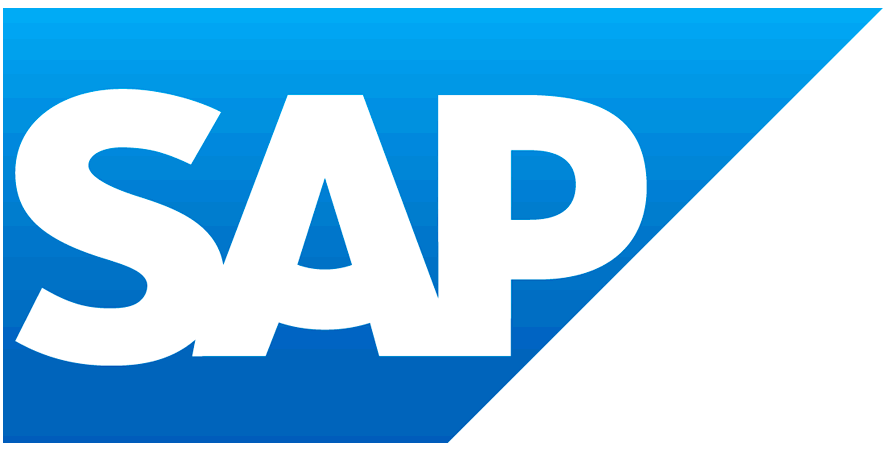Insights From COP28: Harnessing the Power of Business for Climate Action
Feature by Sophia Mendelsohn

SAP touches 87% of global commerce. This vast reach means our solutions organize much of the world’s supply chain, transportation, financial data, and more. It also means we have the potential to do so in ways that advance a low carbon, circular, and socially responsible economy.
Reflecting on the 2023 United Nations Climate Change Conference (COP28), the scale of SAP’s transformative potential – helping companies record, report, and act on net-zero targets and beyond – has never been clearer.
I observed two key trends that will advance climate action in meaningful ways – a shift towards simplifying data sharing and a transition to sustainable energy – where SAP is poised to help.
A Shift Towards Simplifying Data Sharing
In recent years, more and more companies have made net-zero commitments – often before knowing how to execute these lofty goals. At COP28, I saw business leaders wrestling with how to deliver on these commitments and publicly report on progress amid growing public pressure. They face two significant data challenges: the need for cooperation across the value chain and collaboration around a common language for data exchange.
While many companies successfully measure their own emissions, reaching net zero requires an understanding of Scope 3 emissions, indirect emissions that occur in the value chain, where approximately 80% of carbon emissions fall. This means that to get to net zero, businesses need to share emissions data across the value chain. This requires a high level of collaboration and information sharing among businesses and their suppliers. SAP Sustainability Data Exchange can simplify this process by tracking actual Scope 3 carbon emissions data, not averages and estimates, and facilitating cross-company data sharing.
With solutions like SAP Sustainability Data Exchange, more companies can measure their carbon emissions data and share it across the value chain. However, this proves futile if companies cannot exchange data in a common format. They need to exchange information and understand what it means. Today, many emissions and accounting technology solutions fail to speak the same language with one another. To overcome this obstacle, SAP works closely with the Partnership for Carbon Transparency (PACT), hosted by the World Business Council for Sustainable Development (WBCSD), to create a harmonized data exchange system. Together, we are establishing the methodology and technical infrastructure for product-level greenhouse gas emissions data exchange and measurement so businesses can share real carbon footprints across the supply chain with increased interoperability.
No entity can conquer the decarbonization challenge alone. But, with cooperation across the value chain around Scope 3 emissions and collaboration around standardized carbon emissions data, we can move close to net zero together.
A Transition to Sustainable Energy
Given the focus on how to deliver on net-zero commitments and decarbonize operations, businesses look to energy as one crucial path to accelerate progress. Beyond aiming for net zero, geopolitical tensions underscore the urgency of bolstering energy security and diminishing reliance on overseas providers. As governments pursue energy independence and implement emissions regulations, corporations are compelled to adhere and transparently track their progress.
As companies face growing pressure from all sides, the pace of the sustainable energy transition intensifies, realizing unanticipated benefits along the way. For example, firms experience enhanced reputations and boosts to market value. And, in the search for cost-effective and efficient energy mixes, many companies find improved operations. A surge in production efficiency often accompanies reduced emissions. These changes inspire more diverse business models, identify new revenue streams, attract new clients, and yield a broader customer base.
As businesses move toward alternative energy sources, fostering transparency and trust through accurate data tracking and measurement proves challenging. Take green hydrogen as an example. Generated by the electrolysis of water using renewable sources like solar or wind energy, it offers a carbon-emission-free energy solution. However, fostering demand for green hydrogen requires a high level of transparency to ensure authenticity, build trust among consumers, businesses, and governments, and measure its environmental impact.
SAP works closely with governments, the CEO Alliance for Europe, H2Global, and Hydrogen Europe to address the critical need for transparency across the entire lifecycle of green hydrogen – from production to distribution. Establishing a digital layer for green hydrogen guarantees its authenticity and differentiation from other grades of hydrogen aiding certification and proof of origin. This creates a clear market for green hydrogen, helping consumers understand its intrinsic value and positive environmental impact. SAP Green Token utilizes an energy-efficient blockchain method that helps provide this visibility into the hydrogen journey and can enable auditable volume movements among various partners.
While digital technologies actively drive the transition to renewable energy, we recognize the indispensable role of collaborative, action-oriented partnerships in propelling these efforts forward. Ahead of COP28, SAP joined global efforts led by the Global Renewables Alliance to triple global renewable energy capacity by 2030, accelerate the clean energy transition, and scale up investments in renewables. SAP also supports the We Mean Business Coalition Fossil to Clean campaign, a business initiative urging governments to phase out fossil fuels. The future requires collaboration with all stakeholders – value chain partners, NGOs, industry groups, and more.
As the conference concludes, the real work begins. Reflecting on last week and the resounding call for global climate action, SAP remains committed to helping our customers simplify data sharing and transition to sustainable energy. The technology and the data exist. Now, we need to deploy these tools effectively and harness them to drive meaningful impact across a vast ecosystem of organizations. A sustainable future starts today, and the responsibility lies with each one of us doing our part.
Learn more about SAP Sustainability at sap.com/sustainability.
Sophia Mendelsohn is chief sustainability and commercial officer and co-GM for SAP Sustainability.

